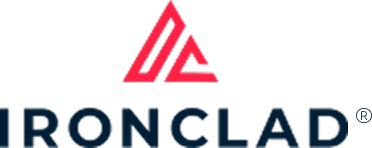In the dynamic business environment of California, managing human resources (HR), payroll, and risk compliance can be challenging, especially for small and medium-sized businesses. This is where Professional Employer Organizations (PEOs) come into play. Partnering with a PEO can provide significant advantages in navigating California’s complex employment landscape.
What is a PEO?
A Professional Employer Organization (PEO) is a firm that provides comprehensive HR services to businesses. Through a co-employment arrangement, a PEO handles various employee management tasks, including payroll processing, benefits administration, and regulatory compliance. This partnership allows businesses to focus on their core operations while the PEO manages administrative responsibilities.
Relevance to California Businesses
California is known for its stringent employment laws, which are often more comprehensive than federal regulations. For instance, the state has specific requirements for minimum wage, overtime, meal and rest breaks, and employee classifications. Non-compliance can result in substantial penalties. A PEO with expertise in California’s legal framework can help businesses adhere to these regulations, reducing the risk of legal issues.
HR Management Benefits
PEOs offer a range of HR services tailored to meet the unique needs of California businesses:
- Recruitment and Onboarding: PEOs assist in attracting and retaining talent by developing effective recruitment strategies and streamlined onboarding processes.
- Employee Benefits Administration: They manage benefits such as health insurance, retirement plans, and other perks, ensuring compliance with state laws and enhancing employee satisfaction.
- Performance Management: PEOs provide tools and guidance for employee evaluations, goal setting, and performance improvement plans, fostering a productive work environment.
Payroll Processing Advantages
Accurate and timely payroll processing is crucial. PEOs offer:
- Compliance with Wage Laws: Ensuring adherence to California’s minimum wage and overtime laws, which may vary by city and county.
- Tax Filing and Reporting: Managing state and federal tax withholdings, filings, and end-of-year reporting to prevent costly errors.
- Payroll Technology: Utilizing advanced systems for accurate time tracking, direct deposits, and employee access to payroll information.
Risk Management Support
Navigating California’s regulatory environment requires proactive risk management:
- Compliance Assistance: PEOs help businesses comply with employment laws, reducing the risk of lawsuits and fines.
- Workplace Safety Programs: They develop safety protocols and training to minimize workplace injuries, aligning with California’s Occupational Safety and Health regulations.
- Employee Classification Guidance: Assisting in correctly classifying employees and independent contractors to comply with laws like California Assembly Bill 5 (AB 5).
Practical Example
Consider a small tech startup in California experiencing rapid growth. The complexities of managing HR tasks, payroll, and compliance with state laws become overwhelming. By partnering with a PEO, the startup can:
- Streamline HR Processes: Implement efficient recruitment, onboarding, and performance management systems.
- Ensure Payroll Accuracy: Maintain compliance with wage and hour laws, and handle tax obligations effectively.
- Mitigate Risks: Stay updated on legal changes and maintain workplace safety standards.
This partnership allows the startup to focus on innovation and growth, knowing that HR and compliance matters are in expert hands.
Conclusion
For California businesses, especially small and medium-sized ones, partnering with a PEO can be a strategic move. By outsourcing HR, payroll, and risk management tasks to professionals well-versed in the state’s complex regulations, businesses can focus on their core objectives, enhance operational efficiency, and reduce potential legal risks.

